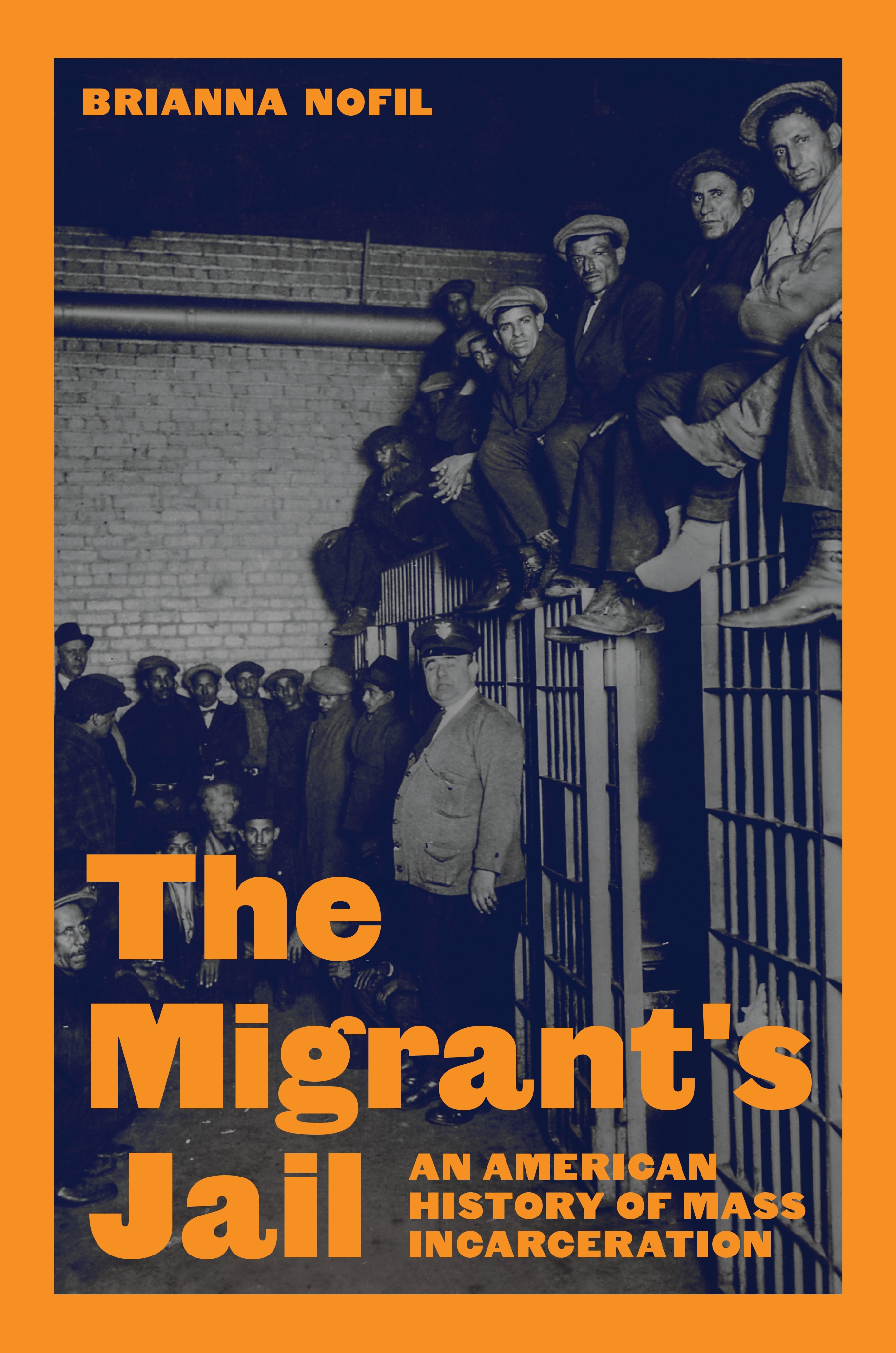At its annual meeting in April, the Organization of American Historians awarded the Frederick Jackson Turner Award ("given annually to the author of a first scholarly book dealing with some aspect of American history" to Brianna Nofil (William & Mary) for The Migrants Jail: An American History of Mass Incarceration (Princeton University Press). The citation:
Brianna Nofil’s The Migrant’s Jail explains how a century of political, economic, and ideological exchange between the U.S. immigration bureaucracy and the criminal justice system gave rise to world’s largest system of migrant incarceration. Ultimately, it asks (and answers) the question: How can a self-proclaimed nation of immigrants also be a place that imprisons tens of thousands of immigrants, exiles, and refugees? Migrant incarceration remade the political economy of American jails and rewrote the constitutional rights of noncitizens, as local entities competed for federal revenue associated with the practice, even before private prison companies entered the business in the 1980s. This dispersed, local participation in turn helped cultivate popular fears and the myth of migrant harm that have infused a broader American national discourse. The Migrant’s Jail is an important, original, and surprising story, well told, based on extensive, impressive research and analysis. It is a timely national account grounded in local places and institutions, offering broad regional and chronological coverage and perceptively illuminating a central contemporary controversy—one that has been around longer than we might imagine and one that afflicts us now more than ever.
The Migrant's Jail also received the OAH's Ellis W. Hawley prize ("for the best book-length historical study of the political economy, politics, or institutions of the United States, in its domestic or international affairs, from the Civil War to the present") The citation:
The Migrants Jail: An American History of Mass Incarceration, by Brianna Nofil, is an excellent example of why history matters to modern discussions of migration, immigration, and detention. This timely and meticulously researched study guides readers across the United States and through a century of history while employing a combination of compelling and consistent analysis from beginning to end. “The Migrant’s Jail,” as Nofil states, “tells a national story about local institutions.” Such a focus asks readers and scholars to combine our awareness of court cases and federal restriction policies with the lesser-known cooperative action and resource assistance from American counties that have made, and continue to make, mass detention and deportation possible. The result of this reality, and the “exchange between U.S. immigration bureaucracy and the criminal justice system,” is the creation of “the world’s largest mass incarceration system.” It is the sincere honor of this committee to recognize, with unanimous and uncontested consensus, Brianna Nofil and The Migrant’s Jail: An American History of Mass Incarceration as the winner of the 2024 Ellis W. Hawley Prize.
Congratulations to Professor Nofil!
-- Karen Tani
